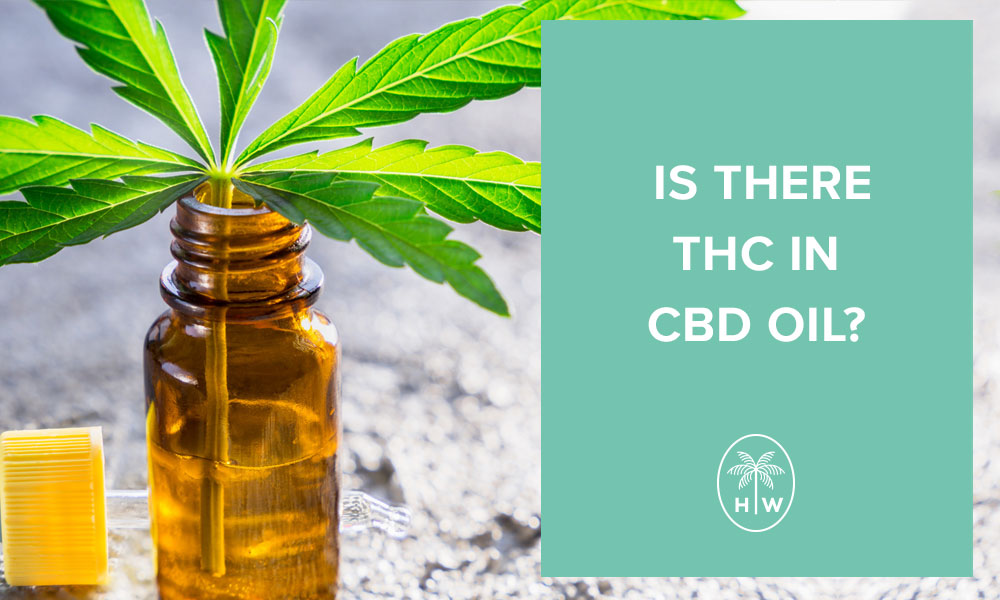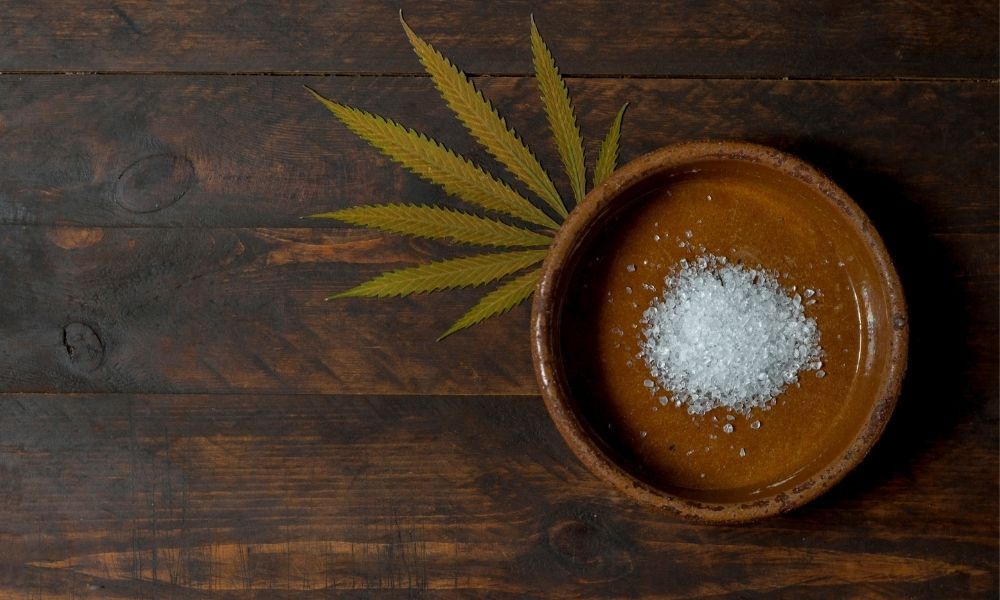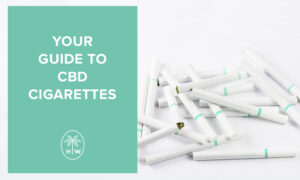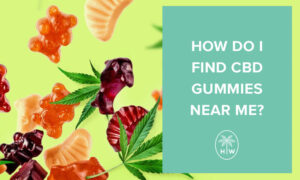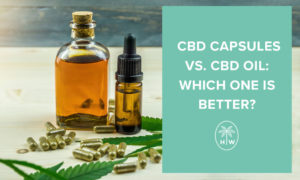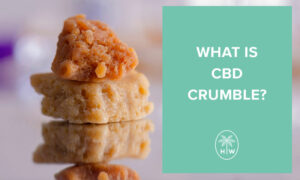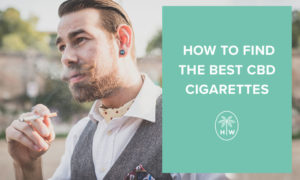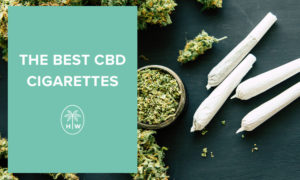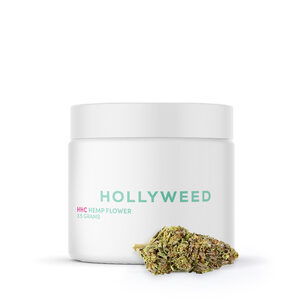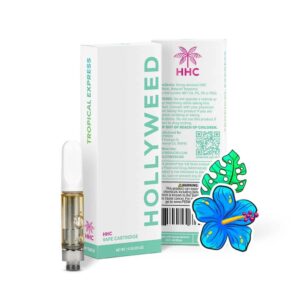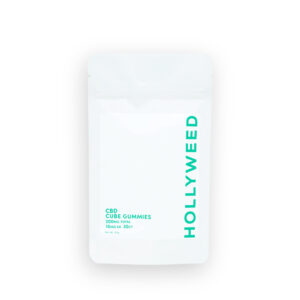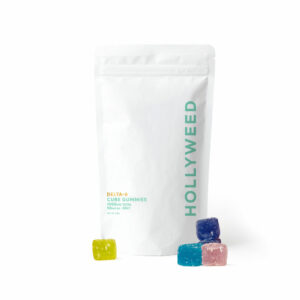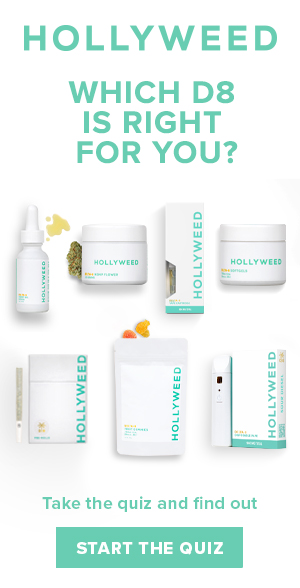As people learn about CBD (cannabidiol), it’s only natural they might get confused about its relation to THC (tetrahydrocannabinol). We completely understand—it’s a complicated subject! It seems that some CBD products have THC, but some don’t. Does CBD oil have THC?
Well, sometimes it does, and sometimes it doesn’t. You can purchase THC-free CBD oil and other varieties that contain THC. In this article, we’ll explore the various types of CBD oils on the market and learn about the benefits of each.
Table of Contents
What is CBD oil?
CBD oil is a liquid cannabidiol solution. Manufacturers make CBD oil by extracting cannabidiol from hemp and infusing it into a carrier oil. Hemp seed oil is commonly used as a carrier oil because it contains terpenes and beneficial nutrients (high in omega 3,6 and 9 fatty acids).
People love CBD oil for its versatility – you can swallow it, mix it into food or drinks, and even apply it topically. Its potency and versatility continue to make it a widely popular product.
When CBD enters the body, it interacts with the endocannabinoid system (ECS). The ECS is a body-wide network of cannabinoid receptors that help maintain homeostasis by regulating functions such as mood, digestion, pain response, and more.
What is THC?
THC is another cannabinoid found in hemp. Unlike CBD, THC produces psychoactive effects. This means it can get you “high” if you ingest enough of it.
THC is found in high levels (0.3% or more) in the marijuana plant. However, hemp plants only contain 0.3% or less THC. Though THC is intoxicating, the trace amounts in hemp are not enough to induce disorienting effects.
In 2018, an updated Farm Bill federally legalized hemp and hemp-derived CBD products as long as they only contain trace amounts of THC (0.3% or less). But, if you live in a state where marijuana is legal, you may come across CBD products with THC levels that exceed this limit.
Does CBD Oil Contain THC?
Sometimes yes, sometimes no. It all depends on the type of CBD oil you choose. There are three different formulations: CBD isolate, broad-spectrum CBD, and full-spectrum CBD. Each kind has its own unique way of providing benefits to each consumer.
Full-spectrum formulas contain low THC levels (0.3% or less). That tiny level of THC works together with cannabidiol to boost the CBD oil’s efficacy. This is known as the “entourage effect.”
While full-spectrum CBD oil contains THC, broad-spectrum does not. However, both broad and full-spectrum formulas contain flavonoids and terpenes. These are compounds that give hemp its aroma and color. They also contribute to the entourage effect. Let’s take a closer look at each formula to see the benefits they offer:
CBD Isolate Formulation
CBD isolate is a powder form of CBD that has gone through a process to remove all other cannabinoids, including THC. It’s incredibly potent at 99% pure CBD and delivers the cannabinoid’s benefits without interference from any other compounds.
Isolate is a tasteless white powder that you can mix into food or drinks. Unlike CBD oil, you can vaporize isolate. Its discretion and versatility make it a popular option for those who want to avoid THC for drug test purposes or sensitivities but still wish to consume CBD for its natural benefits.
Broad-Spectrum CBD Formulation
Broad-spectrum CBD oil contains all the flavonoids, terpenes, and non-psychoactive cannabinoids from the hemp plant. However, it does not contain any THC. Like isolate, this formulation is great for people wishing to consume CBD oil but avoid THC for personal reasons.
Unlike isolate, broad-spectrum CBD oil can produce the entourage effect! If you want to try THC-free CBD oil, broad-spectrum formulas are the right product for you.
Full-Spectrum CBD Formulation
Full-spectrum CBD oil contains 0.3% or less THC, giving it the unique ability to produce a particularly beneficial entourage effect. As we mentioned before, this extremely low THC level will not induce intoxicating side effects. But, it is enough to increase the relaxing properties of CBD.
If you’re looking to experience the maximum potential of CBD oil, a full-spectrum formulation is the way to go. Be cautioned—though it is rare, consistent consumption of full-spectrum CBD can cause THC to build-up in your system, and this may lead to a positive drug test.
Is CBD Oil Better With or Without THC?
It all depends on your personal preference! In terms of efficacy, CBD oil is better with trace amounts of THC. You achieve the most powerful entourage effect by consuming a complete profile of compounds and cannabinoids, and that includes THC.
However, as we’ve mentioned, many people wish to avoid THC for various reasons. Some people need to take drug tests for work or athletics. In states where marijuana is legal, many companies still do not allow employees to use it.
The good news is that you can still enjoy CBD and avoid THC by using broad-spectrum and isolate formulas! You can even still experience the entourage effect with broad-spectrum CBD products.
Whether you’re avoiding a positive drug test, don’t like the effects of THC, or just want to feel the pure effects of CBD, an isolate formulation is a fantastic option. It won’t produce any entourage effect, but it will deliver CBD’s natural benefits.
Hollyweed Full-Spectrum CBD Oil
At Hollyweed, we understand the importance of clean, potent, and effective CBD products. That’s why we source from 100% organic hemp farms in Colorado and Oregon and use a CO2 extraction process to make our full-spectrum CBD oil.
Unlike other extraction methods that use solvents that leave behind a chemical residue, CO2 extraction is clean and safe. Plus, we send all of our extracts to a third-party lab to test the cannabinoid content and purity.
Brand-transparency is essential to us. We post the results of those third-party lab tests in the form of certificates of analysis (COAs) on our website. This way, you can verify the exact cannabinoid levels by checking the COA for any of our products.
Once we have that pure CBD oil, we add varying amounts of hemp seed oil to achieve different potency levels in differently sized bottles. As we mentioned earlier, hemp seed oil adds terpenes and a range of health benefits. There are no preservatives, GMOs, artificial flavors, or colors in our oil.
When you choose our high-quality CBD oil (or any of our CBD products), you should feel confident that you’re choosing a safe, organic, and effective extract. Our products are made entirely from hemp.
Keep in mind that since it is full-spectrum CBD oil, it contains small amounts of THC (0.3% or less). CBD and THC work wonderfully together, and trace amounts of THC are not enough to produce psychoactive effects.
Calculating CBD Oil Dosage
As we mentioned, hemp and hemp-derived CBD products were legalized at the federal level, thanks to the 2018 Farm Bill. However, CBD has not been approved by the Food and Drug Administration (FDA) for medical use, other than for one anti-seizure medication, Epidolex.
Since CBD has not been fully reviewed and approved, there are no “official” dosing guidelines. To provide you with some guidance as you embark on your CBD journey, we’ve come up with a dosage range calculator for our customers. We generally recommend 0.25mg (mild dose) to 0.5mg (strong dose) of CBD for every one pound of bodyweight.
To calculate your dosage range, simply multiply your weight in pounds by the rate (mild or strong). We’ll demonstrate for you! Say you weigh 135 pounds:
- For a mild dose: 135 x 0.25 = 33.75 mg
- For a strong dose: 135 x 0.50 = 67.5 mg
Now you have your recommended dosage range of 33.75-66.5 mg of CBD! Keep in mind that you may benefit from amounts that are even higher (or lower) than this range, depending on your own personal preferences.
If it’s your first time trying CBD oil, we recommend starting at the mild end of your dosage range. When you swallow CBD, it can take between 30 minutes and two hours for the effects to kick in. If you don’t feel effects after that time, you can always take more.
Final Thoughts
That was a lot of information, but we hope it helped you better understand why some CBD oils contain small amounts of THC and others are THC-free. Here are some takeaways:
- Full-spectrum CBD oil contains low THC levels (0.3% or less) and produces the most synergistic entourage effect, resulting in maximum benefits.
- Broad-spectrum CBD contains no THC and does produce an entourage effect, though it is not quite as potent as the effects from full-spectrum oil.
- CBD Isolate is the purest form of CBD, containing no THC or other cannabinoids. It does not produce the entourage effect but does provide a solely CBD experience.
No matter your preference, there’s a CBD product that’s perfect for you!
Read Next: Does CBD Counteract THC? Experts Explain Interaction
